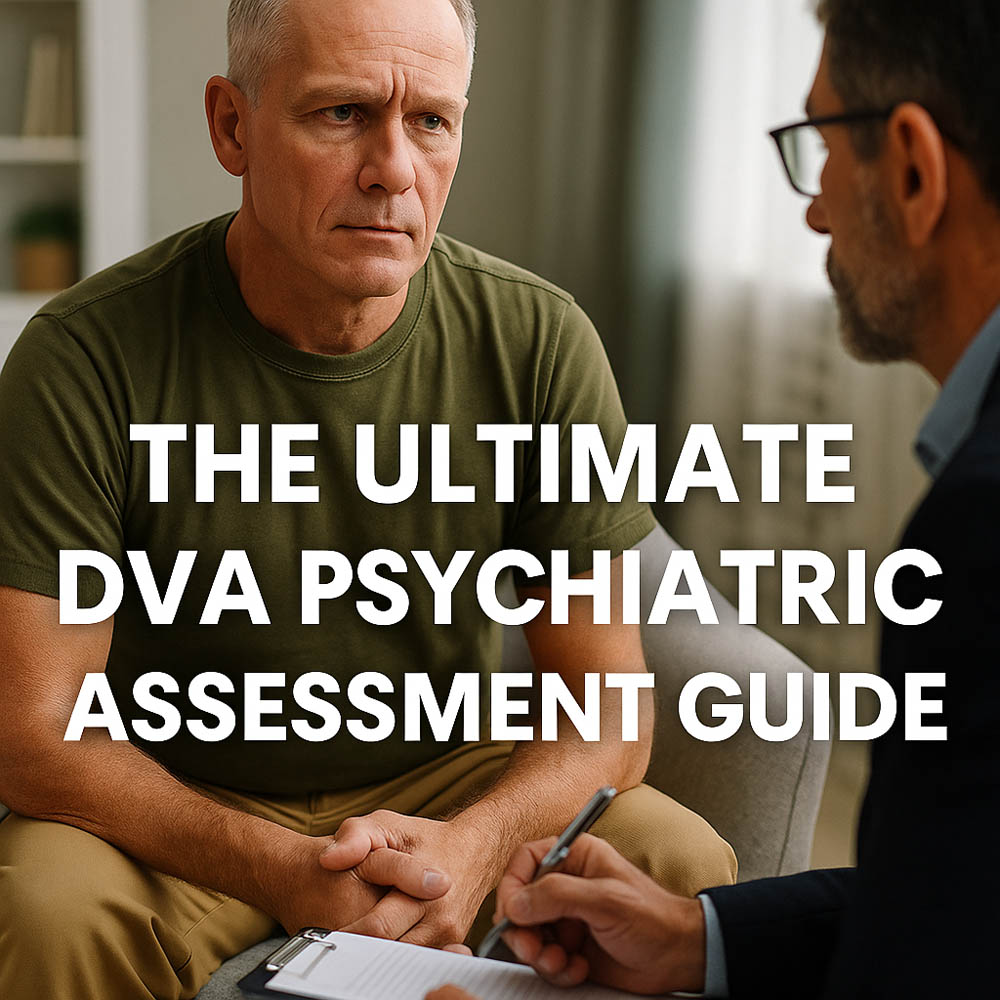The Ultimate DVA Psychiatric Assessment Guide - What Veterans Need to Know

Introduction
Navigating a DVA psychiatric assessment can be unfamiliar and daunting, especially when mental health is involved. Veterans and their families often ask: What exactly is a DVA psychiatric assessment? Why is it necessary? How should I prepare?
This guide addresses those questions. It outlines the purpose, process, and expectations of a DVA psychiatric assessment, and explains how independent psychiatric reports can support your mental health claim.
At March Ahead, we specialise in providing ethical, DVA-compliant psychiatric assessments to support veterans’ compensation journeys. Our goal is to ensure that every veteran feels heard, understood, and supported.
What Is a DVA Psychiatric Assessment?
A DVA psychiatric assessment is a clinical evaluation by a qualified psychiatrist to determine if a veteran’s mental health condition is service-related. These are not treatment sessions-they’re impartial evaluations used by DVA to support compensation and care decisions.
All assessments are conducted by AHPRA-registered psychiatrists accredited by the RANZCP.
Purpose of the Assessment
- Evaluate mental health symptoms (e.g., PTSD, depression, anxiety)
- Review your service and medical history
- Determine if a service-related connection exists
- Provide an independent report to DVA
These reports are crucial to ensuring that DVA has accurate evidence to make fair decisions.
The Assessment Process
1. Pre-Assessment
You may need to complete psychometric tests (like DASS-21 or PCL-5). Gather:
- Service documents
- Prior psychiatric reports
- GP or hospital summaries
- Notes on any impactful service-related events
2. During the Assessment
The psychiatrist will ask structured questions about:
- Your military experiences
- Mental health symptoms
- Impact on work, relationships, and daily life
Be open and honest—this ensures an accurate report.
3. After the Assessment
- A report is written and reviewed internally
- Submitted securely to DVA
- Used as part of your compensation evidence
Why Independent Reports Matter
Independent psychiatric reports:
- Strengthen your claim
- Are compliant with DVA requirements
- Offer unbiased evidence
They’re especially helpful for complex or previously rejected claims.
Tips for a Successful Assessment
- Be honest
- Prepare notes
- Bring a support person
- Ask questions
- Stay calm
About March Ahead
March Ahead provides independent psychiatric assessments for DVA claims. All reports are reviewed by qualified professionals and submitted securely to DVA. We do not offer legal advice but ensure every report is clinically sound and impartial.
Conclusion
A DVA psychiatric assessment is a vital part of your claim process. With the right preparation and guidance, it can become a powerful tool for recognition and access to support.